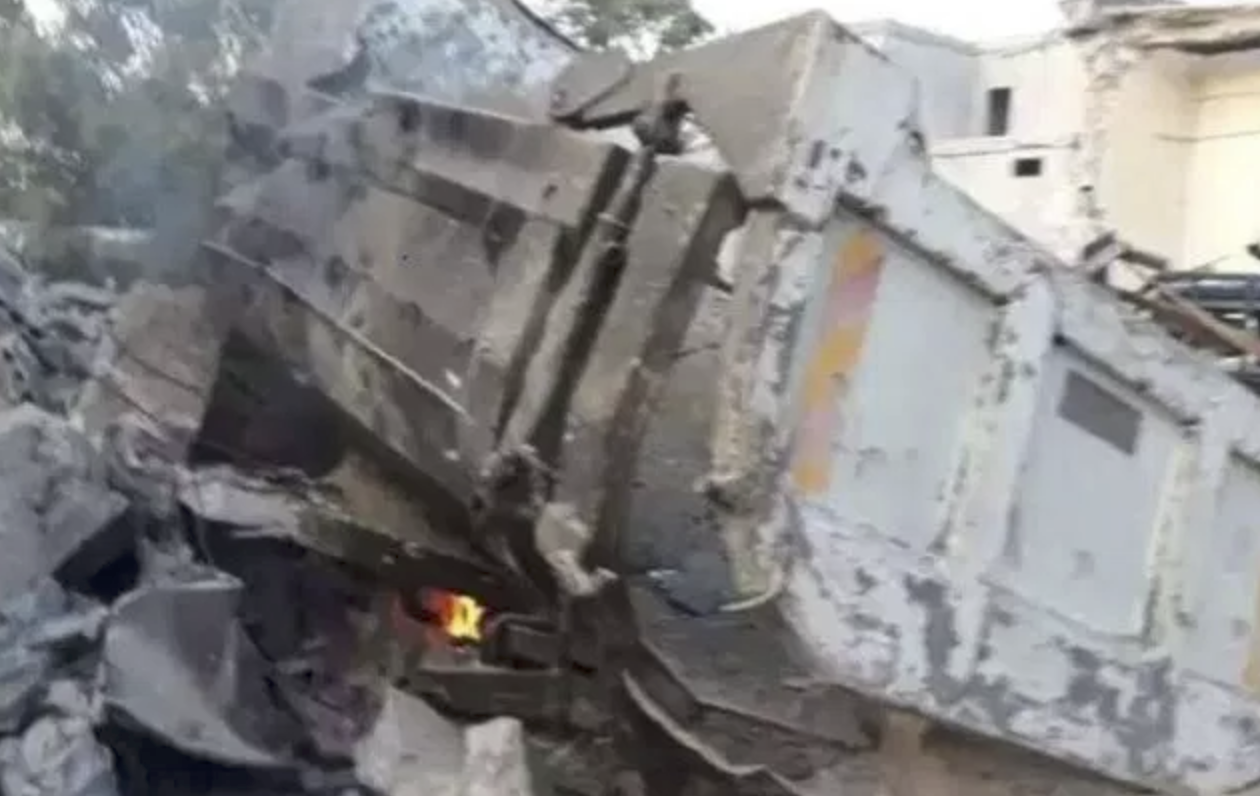![]() Dahir Hassan woke up in Burnsville to a text message that read, “You would be dead if you were here.” There on his phone was a picture of his apartment in Mogadishu, its windows blown out by a massive bomb blast last weekend.
Dahir Hassan woke up in Burnsville to a text message that read, “You would be dead if you were here.” There on his phone was a picture of his apartment in Mogadishu, its windows blown out by a massive bomb blast last weekend.
Undeterred, the former Minneapolis teacher flew back this week to join a growing relief effort in Somalia’s capital, where he serves as an adviser in the Ministry of Foreign Affairs.
The deadly terror attack brought profound grief, but it also galvanized efforts to help the shattered city. In Mogadishu, a small but high-powered contingent of Somali-Minnesotans sprang to action. They rode in ambulances with the injured, donated blood and held an intimate vigil for a Bloomington father who had arrived hours before the bombing, only to become one of more than 300 who died.
Here in Minnesota, those eager to help from afar have kicked off fundraisers at mosques and online. Some have turned to returnees for guidance, making them a crucial link between the local community — the largest North American Somali diaspora — and their East African homeland. The returnees’ defiance gives them hope that the bloodshed will not upend Somalia’s fragile recovery from more than two decades of civil war.
For Hassan, leaving behind his wife and five children in Burnsville was hard. But, he said, “I weighed my family’s situation against the suffering of people in Somalia, and that brought me to the decision to go back and help.”
Minnesota makes a mark
In recent years, a growing number of Minnesota Somalis have returned to the country of their roots to start businesses, work with nonprofits and run for office — frustrated sometimes that they are overshadowed by a much smaller number who have traveled to join militants there and in the Middle East.
In the Somali-American caucus in parliament, seven members hail from Minnesota, said Sadik Warfa, who moved back last year from the Twin Cities and won a seat.
Abdi Aynte, the founder of a Mogadishu nonprofit research center, said he knows at least 50 Minnesotans actively engaged in rebuilding.
Hassan, the former Minneapolis educator, returned in 2013 to spend time with his ailing mother — and stuck around after she died. He first got a job with the ministry of agriculture, and in a tight-knit group of fellow Minnesotans, he discovered camaraderie and a sense of momentum.
“We were a whole community from Minnesota in Somalia working to bring back decency, normalcy and respect for human rights,” Hassan said.
The militant group Al-Shabab, which experts believe carried out the recent blast, has targeted that expat community, including a Twin Cities civil engineer gunned down in 2014.
But the aftermath of the blast, which Somalis have dubbed their 9/11, has erased divisions in Mogadishu. Minnesotans in the city found themselves in a rare position to help out on the ground.
Nimco Ahmed, a human rights adviser and former aide to a Minneapolis City Council member, rushed to the bombing site, just a mile from her home. She had returned to the city in 2013 and adopted two children, an uncommon move in Somalia. She was holding her infant daughter when the explosion shook them so hard she felt the child would slip out of her arms.
Since then, she has clocked countless hours at Gurmad Qaran, an organization in the heart of Mogadishu that has helped coordinate the emergency response.
She took calls from desperate families searching for loved ones and scrambled to secure passports for the wounded who had to be airlifted to Turkey.
Ahmed, who lost cousins and friends in the blast, rode in ambulances with victims.
“We deliver bad and good news,” Ahmed said, crying. “But we make sure that victims’ families don’t feel like they are alone.”
Warfa joined a protest march Wednesday that drew thousands to a Mogadishu stadium, where they denounced Al-Shabab.
“We were mourning, but we were also affirming that we Somalis must turn a corner,” Warfa said.
In Minnesota, many are eager to be part of the response. Several mosques held fundraisers during Friday prayer. The Dar Al-Farooq Center in Bloomington raised money for the family of Ahmed AbdiKarin Eyow, the Bloomington man killed in the Mogadishu attack.
A group of young Somalis in Minneapolis has raised $25,000 for the victims through the website GoFundMe. Minneapolis City Council Member Abdi Warsame, who lost seven cousins in the attack, will appeal to the state’s congressional delegation for aid.
Said Sheik-Abdi, who works for the Minneapolis-based American Refugee Committee, has channeled the local outpouring of support into a fundraising drive for Madina, the Somali city’s only public hospital. The effort is deeply personal: In 1992, the year before he left Somalia, he was injured in an explosion at a Mogadishu market. Bystanders rushed him to Madina, but the hospital was overwhelmed and turned him away.
Eventually, an American volunteer doctor at a nonprofit clinic repaired his fractured thigh — sparking his early interest in humanitarian work.
Much to be done
For those eager to help, on both continents, there’s much work ahead. Warfa, the member of Somalia’s parliament, said he will be among those appealing to international leaders and investors to capitalize on the spotlight the attack has trained on the country.
The blast forced a reckoning for Abdinasir Elmi, a Minnesota businessman in Mogadishu. Elmi dropped the Bloomington father off at the hotel. Hours later, he and three other Minnesota transplants dug through the rubble until they located Eyow’s body with a cellphone flashlight.
“This was the first time I ever thought about leaving Mogadishu,” said Elmi, founder of a small airline business that employs more than 60 locals. The roof of his office, just a few blocks from the blast, collapsed.
Others said their resolve remains strong, and they hope the devastation inspires others to come back and pitch in.
Ahmed said family members in Minnesota are “worried to death” and have pleaded with her to come back. But she feels more motivated than ever to stick around.
“As sad and terrifying as it is, there’s still much hope,” she said. “Many of us want to do more than we did before to help our country.”





 The Somali government has fired two top security officials after twin blasts and a siege left at least 27 people dead on...
The Somali government has fired two top security officials after twin blasts and a siege left at least 27 people dead on...




 Police say more than 20 people, including government officials, are thought to be trapped inside a hotel in Somalia’s capital where security forces...
Police say more than 20 people, including government officials, are thought to be trapped inside a hotel in Somalia’s capital where security forces...

 German courts have sentenced numerous German nationals for joining foreign Islamist militants in recent years. Abshir A. and Ozkan C. have been...
German courts have sentenced numerous German nationals for joining foreign Islamist militants in recent years. Abshir A. and Ozkan C. have been...

 China will continue to participate in escort missions in the Gulf of Aden and waters off Somalia to protect the international lane,...
China will continue to participate in escort missions in the Gulf of Aden and waters off Somalia to protect the international lane,...


 Somali Prime Minister Hassan Ali Khayre on Thursday met the injured victims of of the recent Mogadishu blast who have been receiving...
Somali Prime Minister Hassan Ali Khayre on Thursday met the injured victims of of the recent Mogadishu blast who have been receiving...
 Somali government troops and their African Union allies are preparing a large-scale offensive against al-Shabab militants, according to multiple witnesses and government...
Somali government troops and their African Union allies are preparing a large-scale offensive against al-Shabab militants, according to multiple witnesses and government...
